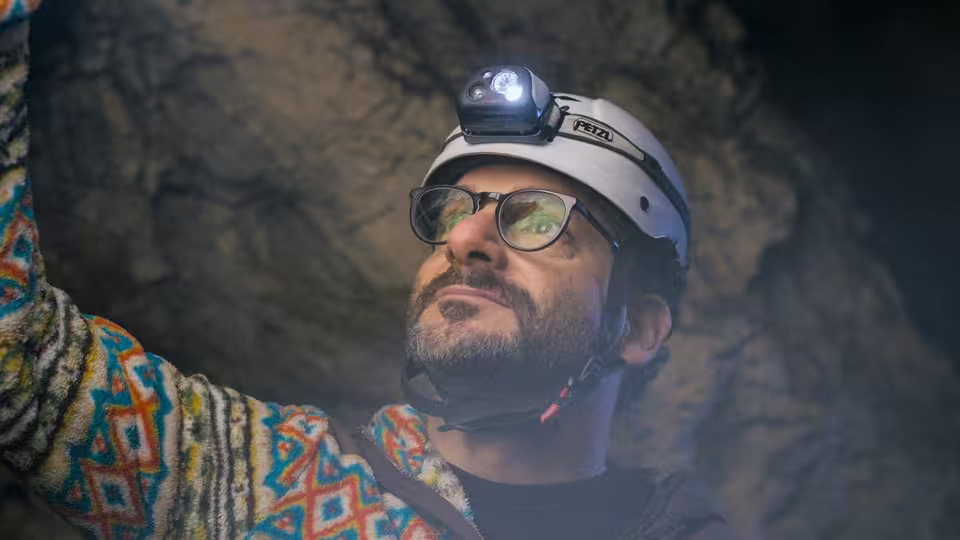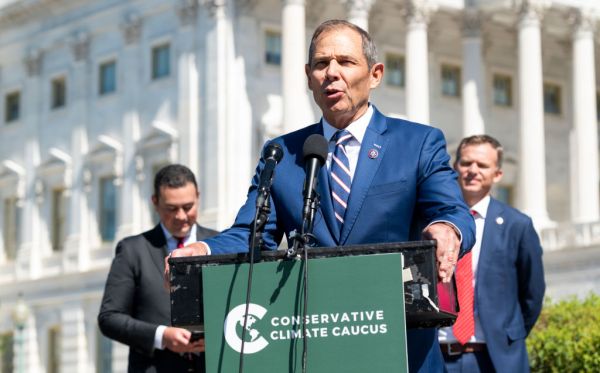According to a 2023 Wall Street Journal-NORC Poll, 78 percent of Americans doubt that their children’s generation will be better off than their own. Their reasons vary—from anxiety about inflation to doubts about the long-term value of a college degree—but they suggest a sizable chunk of the population is ambivalent at best about what the future holds.
Perhaps the most striking aspect of this widespread pessimism is its timing. We live in the most peaceful era in history, when globalization has lifted a billion people out of extreme poverty and technological developments offer underprivileged people access to information and networks that would have been unimaginable just a few decades ago. This is the story of progress, backed by ample evidence, that we were often told. Why, then, do so many dread the days ahead?
A Brief History of the Future tries to both explain and push back against this pessimism. In contrast with the rage bait and doom porn that dominate our newsfeeds, the new PBS documentary series—whose final two episodes are set to air over the next two weeks— contends that we can tackle the technological, ecological, and perhaps even the social challenges facing our world. And it largely succeeds, at least on the first two counts.
The host of the series is Ari Wallach, a soft-spoken, bespectacled, committed futurist. The son of a Holocaust survivor, Wallach has devoted his career in media and politics to understanding the stories we tell ourselves about our past and our future, and to analyzing the long-term trends that are shaping the world our children and grandchildren will inherit. For six hour-long episodes, he meets with the artists, athletes, politicians, scientists, and activists who are building our tomorrow today. One moment he is sitting with Transportation Secretary Pete Buttigieg discussing the importance of forward-looking transportation policy, the next he is chatting with French soccer star Kylian Mbappé about the nature of success—and then he’s crunching on a BLT made with sustainable mushroom “bacon” that promises to reduce the carbon footprint of our food. The end result is a quirky mix between a series of TED Talks and Anthony Bourdain’s No Reservations.
A Brief History of the Future also movingly paints a picture of a powerful, elusive, and widespread malaise in our culture. Despite the awe-inspiring technological innovation and material abundance of the 21st century, people feel disconnected from each other—and even from themselves. This alienation is driven home in the show’s second episode, when Vivek Murthy, the U.S. Surgeon General, shares that half of young Americans feel sad or hopeless, 20 percent have considered suicide, and 10 percent have even attempted it. This heartbreaking statistic undoubtedly resonates with Americans of all political stripes and backgrounds.
But while it acknowledges that and other serious problems, A Brief History of the Future remains largely optimistic. It seeks to inspire by showing us the innovators working tirelessly to solve challenges like ocean plastic pollution. It tries to offer cause for hope by exploring promising research to combat Alzheimer’s disease. These are just two examples of a show peppered with optimistic anecdotes, a welcome change of pace in a media environment where optimism is decidedly unfashionable.
There are times, though, when the show’s optimism slides into Pollyannaishness. For example, Wallach rightfully points to climate change as a defining challenge of our era, yet he ponders if all of India will one day be powered by the sun—after touring one small solar-powered village. India imports 1.5 million barrels of oil per day from Vladimir Putin’s Russia and burns 1 billion tonnes of coal per year. The majority of the world’s solar panels are linked to the Uyghur Region, where the Chinese Communist Party is actively committing genocide. These are the inconvenient truths standing between us and a solar-powered future. Climate optimism is laudable—and certainly better than the chicken-little antics of many activists—but overlooking genuine trade-offs and conflicting interests involved in transitioning the global energy system is counterproductive.
Wallach does acknowledge that there is no one-size-fits-all technological solution and that new ideas are required to address challenges like climate change. Yet, he and his interviewees repeatedly fall back on platitudes such as “there is no such thing as infinite growth” and “we must put people over profit.” These phrases roll off the tongue and fit neatly on protest signs, but they don’t constitute a coherent weltanschauung.
So while A Brief History of the Future does not shy away from the social challenges, it does often lean on the same ideological and spiritual buffet that has left so many of us unsatiated. A slice of Buddhism, a scoop of Malthusianism, and a dollop of anti-capitalism has not, and will not, fulfill our hunger for connection and meaning. It will not create confidence in the future.
Take the young climate activists who desecrate great art and block traffic, destroying a cultural inheritance and standing between their fellow community members and their livelihoods. Has the fringe environmental movements’ Frankenstein ideology of Malthusianism and Marxism given them a future to believe in? No. Would touring the Lawrence Livermore National Laboratory, as Wallach does, where scientists are working to unleash the power of the sun to create unlimited carbon-free energy, relieve their climate anxiety? Likely not.
We live in a fractured reality, where the absolute freedom to live our own truth and endlessly customize our identities has left us dizzy, directionless, and disconnected from each other. The cure for the social malaise Wallach describes so aptly is connection and commitment. Friends and family, faith in a higher power, and service to others provide the scaffolding within which we can build beautiful lives. Technological optimism is laudable and needed, but it alone will not cure our crisis in confidence. Without this scaffolding, we are easily toppled by fear of what life will throw at us next.
And in a way the show acknowledges this, perhaps without fully realizing it. The most powerful scenes of the series are simple, like one scene when Wallach and his family stand around their kitchen table making challah together. He later reflects on how, as he held his daughter in his arms for the very first time, he experienced a new sensation—emotion, outside of his own body.
The stakes are high for our generation, and A Brief History of the Future ably demonstrates that there are many reasons for hope. But the most important reason for looking forward to the future might be that we have a duty to those who will come after us.








Please note that we at The Dispatch hold ourselves, our work, and our commenters to a higher standard than other places on the internet. We welcome comments that foster genuine debate or discussion—including comments critical of us or our work—but responses that include ad hominem attacks on fellow Dispatch members or are intended to stoke fear and anger may be moderated.